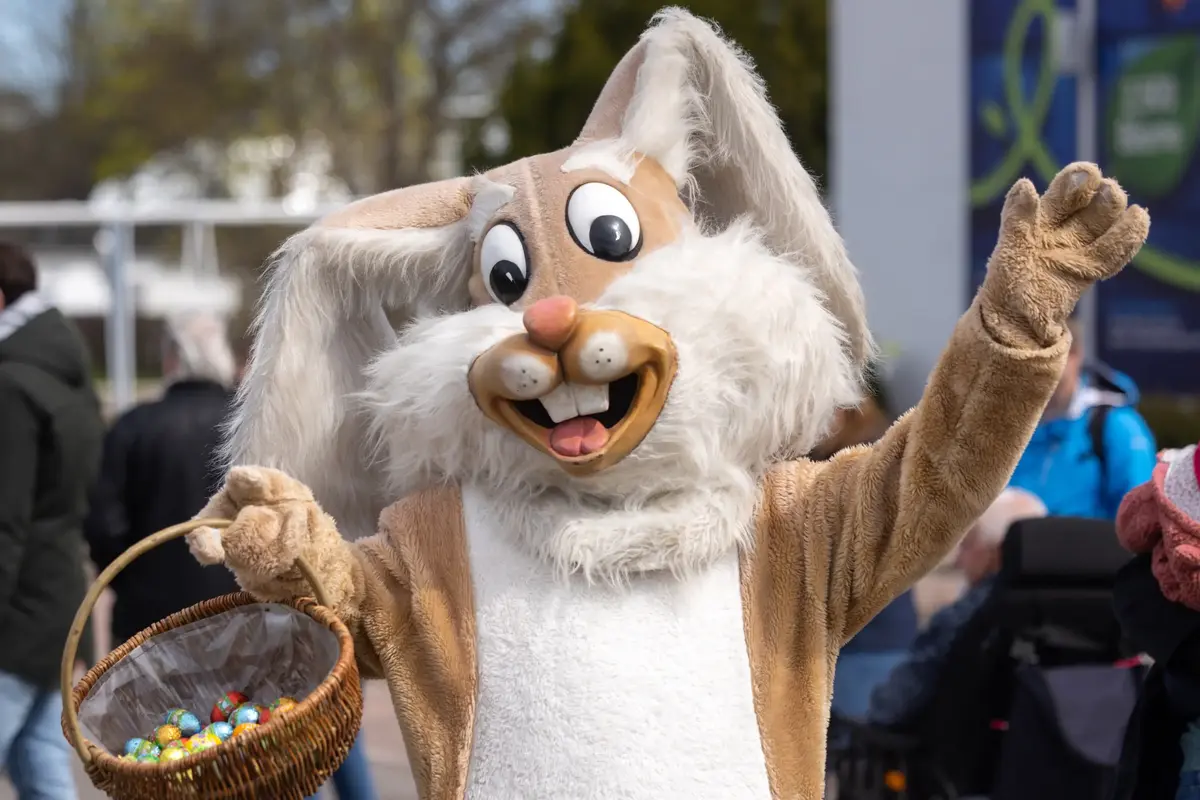What should you say to your kids about the Easter Bunny?
RNZ
19 April 2025, 1:25 AM

The Easter Bunny and its mates Santa and the tooth fairy present a dilemma for parents - promoting the value of generosity through a vehicle of lies.
It’s one of those moments in the year when many parents wonder why they lie to their children about a magical rabbit that leaves Easter eggs in the garden.
In our multicultural society, there are various approaches to the concepts of Santa, the Easter Bunny, and the tooth fairy. At a guess, for the majority of New Zealand children, these fictional characters
are real — at least in the first few years of their lives. After all, New Zealand Post receives more than 100,000 letters each year addressed to Santa at Christmas.
But there are some, whether it is for religious or ethical reasons, who don’t raise their kids to believe in these fictional characters.
Those with a non-Christian religion might steer clear of the Easter Bunny and Santa because of their religious connection to Christian holidays. Some Christians don’t let their kids believe in it because they say it takes away from the holidays' main message about the birth, death and rebirth of Jesus. For others still, belief in the three characters is irrational and anti-science.
“There is no talk about the Easter Bunny or anything. We just explain to them where Easter came from, celebrating new life with the egg,” said an Auckland mother of a 4 and 7-year-old. She never told her kids that Santa, the Easter Bunny or the tooth fairy were real.
“It is not about chocolate and the bunny. We just explain factually where the story came from.”
The family has the same stance when it comes to Santa and the tooth fairy. She told her kids that Santa is not real but he was inspired by a real historical figure, St. Nicholas, a fourth-century Greek saint known for his generosity.
“If someone is climbing into your bedroom window and taking your tooth, that is a scary thought. Why would we tell the kids that?” she said of the tooth fairy.
The mum grew up with parents who decided their kids would not believe in the three characters. The decision was based on the value of anti-consumerism.
“I think even when we were younger it was ‘Let's make something to give to people for Christmas. Let's grow something.”
How to make the decision?
Caitlin Hocken is a parenting coach with Child Wise, a New Plymouth-based service. The parents who often raise concerns about fabricating stories about the Easter Bunny are those who tend to
question other aspects of parenting.
“It’s their personality, you know. They may be a bit more black and white.”
But parents can ultimately make whatever decision they like as long as “they’ve got the really strong value, personal value to back it up".
A lot of parents tend to go with the status quo for their first kids, says Hocken. They begin to question the ethics of making things up as they journey through parenting.
“I think if honesty is a value that you're trying to impart in your family, you might have a bit of discomfort around that.”
Both of Hocken’s children, a 7 and an 11-year-old, grew up believing in the Easter Bunny, Santa and the Tooth Fairy.
"My experience with my boys when they were very little, just that magic that comes from these traditions and the fantasy and the imagination element of going out to the garden believing that
somebody's been and left eggs everywhere."

Lisa Swinburn, a Wanaka-based family coach and counselor.
For Lisa Swinburn, a Wanaka-based family coach and counsellor, Christmas, Easter and the tooth-taking fairy are rooted in the values of imagination and generosity.
However, she decided that when her children asked if they were real, that was when she would tell them the truth. Her youngest child at age six asked the question before her older son did.
“You want to keep nurturing that wonder and follow their developmental readiness.”
“If they start asking the question ‘Is it real?’ Then that is often a sign that they are ready for a different layer of understanding.”
Swinburn remembers the moment she figured out that Santa was not real.
“I think my younger sister might have cottoned on, and [my mum] was afraid that I would find out. So she wanted to be the one to tell me. I cried a lot over it.”
How to not ruin it for others who want their kids to believe?
Of course, a kid who never believes in the Easter Bunny from the beginning or who figures out early on that rabbits have nothing to do with eggs might share their knowledge with others.
It’s an early, digestible lesson about humanity - that we all believe something different.
“So there is another conversation around that we want to respect everyone's beliefs and that everybody has a right to choose what they want to believe,” says Hocken.
When Swinburn’s younger daughter figured out the truth before her older sibling, Swinburn framed it to her as being in on a secret.
“You can say something like ‘You know, now that you know you get to be part of a special group of kids who can keep the fun alive for others.
“Because it’s kind. It’s respectful to do that.”

NEWS
ADOPT A PET







